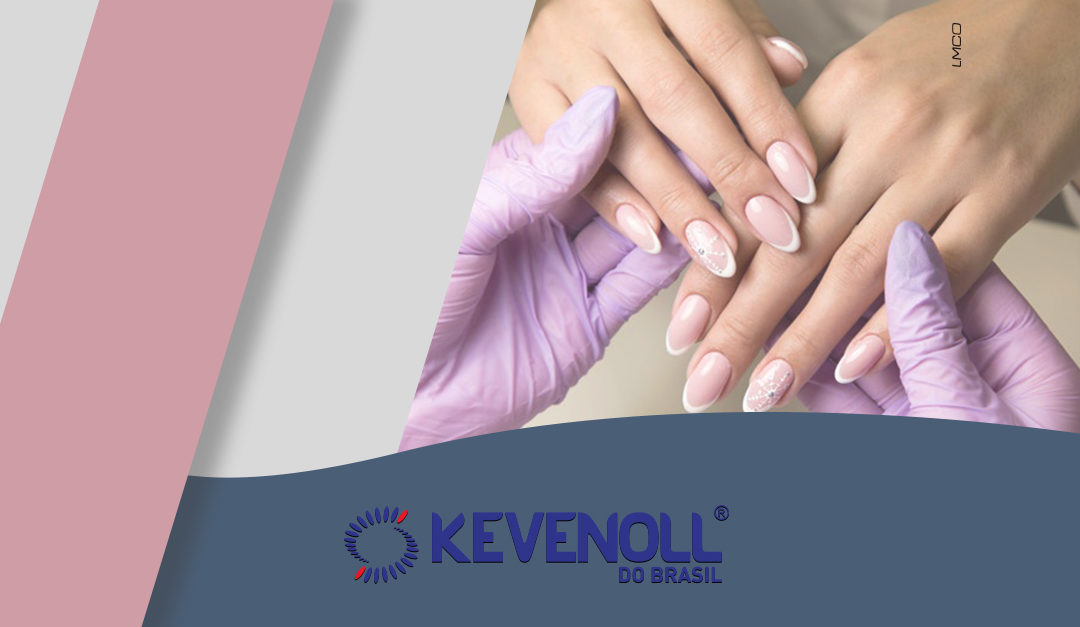As the holidays approach, the demand in beauty salons throughout Brazil tends to increase, and a lot! And hair is not the only ones to become the target of care of the customers of the centers of aesthetics. Nails are considered “business cards” for many women (and men as well), and therefore many devote special attention to them throughout the year, and especially in this Christmas season.
But what many people do not imagine is that a simple going to the manicure can lead to health problems for the client and also for the professional. Studies by infectologists and microbiologists show that pliers, spatulas, reformers, and even nail sandpaper and orange sticks are potential transmitters of viruses, bacteria and fungi.
That is, when in contact with a sick client, the instruments can become contaminated and transmitted to other clients and also to the manicure. In addition, the handling of sharp objects, such as scissors and pliers, leave the manicure and client exposed to minor injuries, such as the removal of cuticles, which can bleed and transmit diseases to each other.
What diseases can be transmitted during a manicure session?
The most common diseases acquired during nail care are mycoses and fungi on the nails and skin, and in more severe cases, Hepatitis B and C, and even the HIV virus. For the latter, the greatest risk occurs when there is some injury in the manicure or client, followed by bleeding.
On the other hand, the simplest infections, as is the case of mycoses and fungi, even the use of the same nail polish on a sick nail and on a healthy nail can spread the bacteria through the client's other fingers, or pass on to other clients served then.
But how to protect yourself?
The National Health Surveillance Agency (ANVISA) is responsible for regulating and supervising procedures in beauty salons and aesthetic centers. According to the agency, about 49% of beauty salons in the country have some irregularity regarding the sterilization of manicure utensils.
For the protection of manicures, it is recommended that:
- If you make constant use of procedure gloves, goggles, masks and lab coats;
- Wash hands before and after putting on gloves, which should be discarded after use (always use a pair for each customer and never try to reuse them);
- Sterilize all metal items, such as pliers, scissors, spatulas and separators correctly. The sterilization process should be done on appropriate equipment, such as the Autoclave. The use of ovens or equipment that use ultraviolet light are not recommended, as they are not able to kill all microorganisms;
- Items such as nail file and orange sticks should be considered as disposable and single-use materials;
- All manicures need to be up to life with vaccines, especially against hepatitis. In some cases, it is also recommended that the serology test be taken to confirm immunization.
For customers, the recommendation is:
- Always choose to bring your own kit when you go to the manicure;
- If you cannot bring your own material, choose salons that set up kits for each customer and always observe whether the sterilized material is being opened at that moment in front of you, or if it has the appearance that has been used previously;
- Keep all vaccines up to time, especially against hepatitis. In some cases, it is also recommended that the serology test be taken to confirm immunization.
Always remember that the use of gloves is mandatory for all manicures. The most recommended types of gloves are latex gloves, which provide greater movement and sensitivity by adhering well to the professional's hands, and nihilic gloves, resistant to perforations, oils, solvents, corrosives and acids. Nitrile gloves are still indicated for professionals who are allergic to latex, and have good elasticity and adherence to the hands.
Vinyl gloves, despite being very resistant to perforations and widely used by manicures, are not the most indicated because they do not adhere well to the hands and cause difficulties in handling the instruments.
Don’t put your health and your customers at risk. Click and get to know Kevenoll products from Brazil.
Reference: Portal Anvisa

